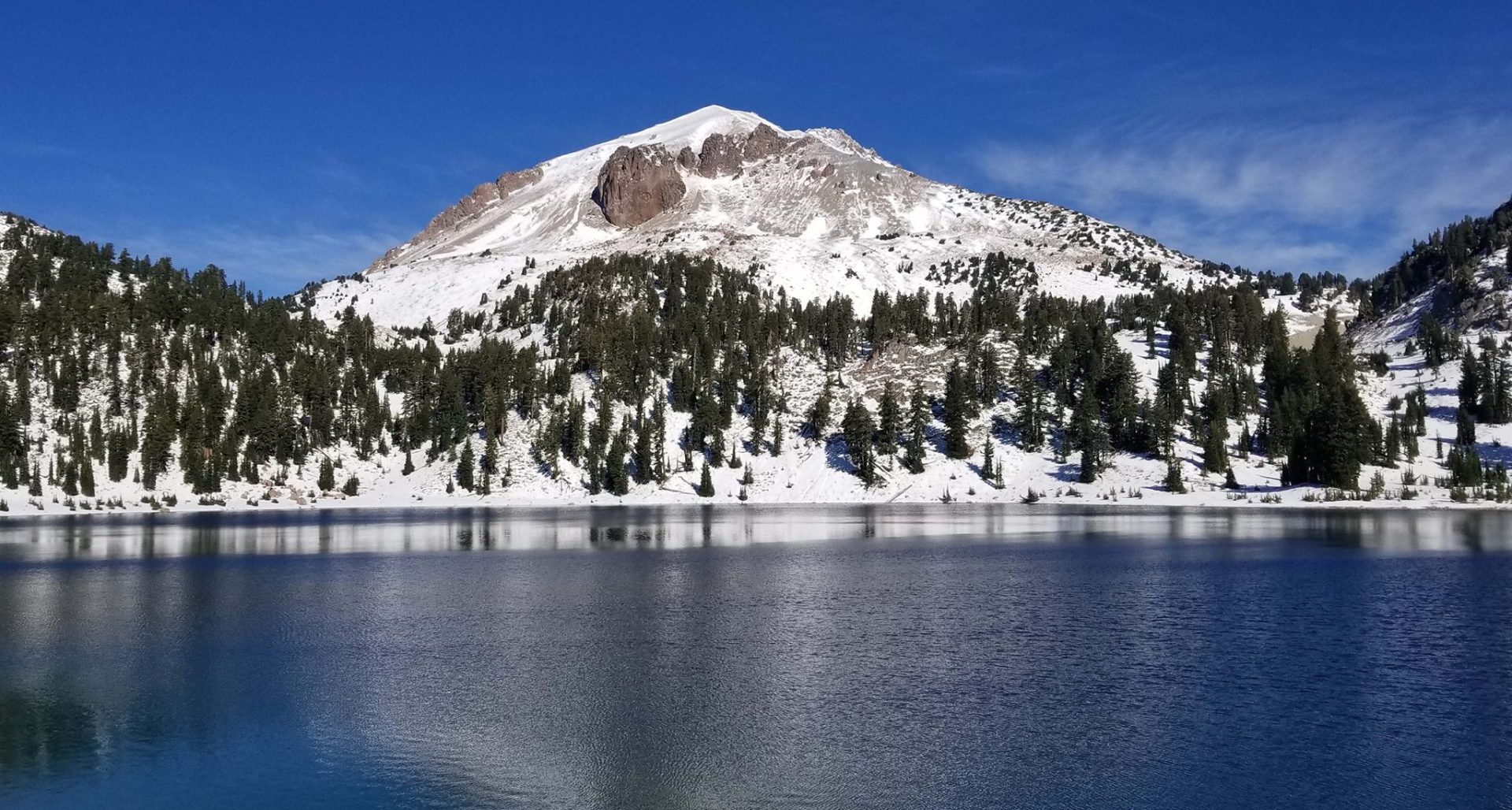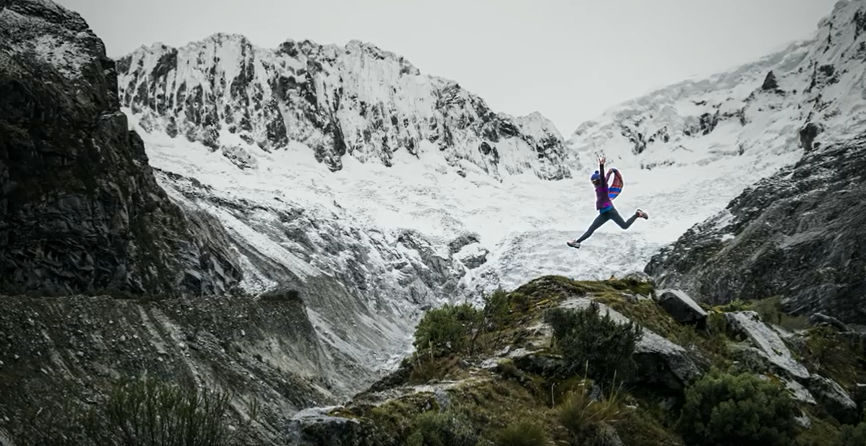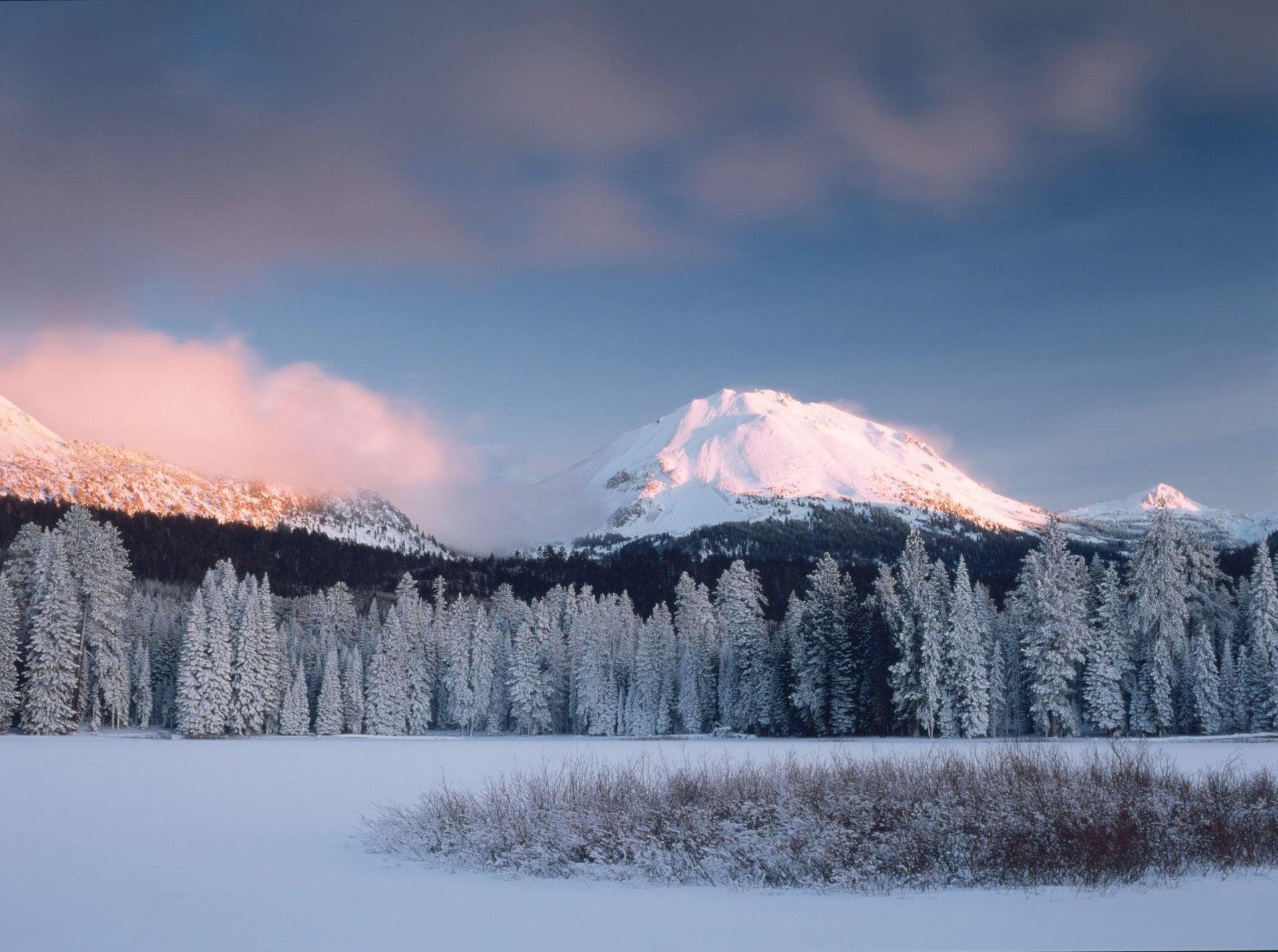
You’re probably wondering how can a peak that is further south and is around ~3,723 ft shorter in elevation typically receives more snow overall compared to a much taller edifice. Before I explain and break down this intriguing case, let’s first get our bearings set in terms of the location and overall coordinates of these two iconic peaks in the state of California.
First, Lassen Peak is situated in Lassen Volcanic National Park (Kohm Yah-mah-nee). This massive plug dome sits at the southern end and terminus of the Cascade Range and is ~90 miles south of Mt. Shasta. Lassen Peak stands mighty at 10,459 ft.
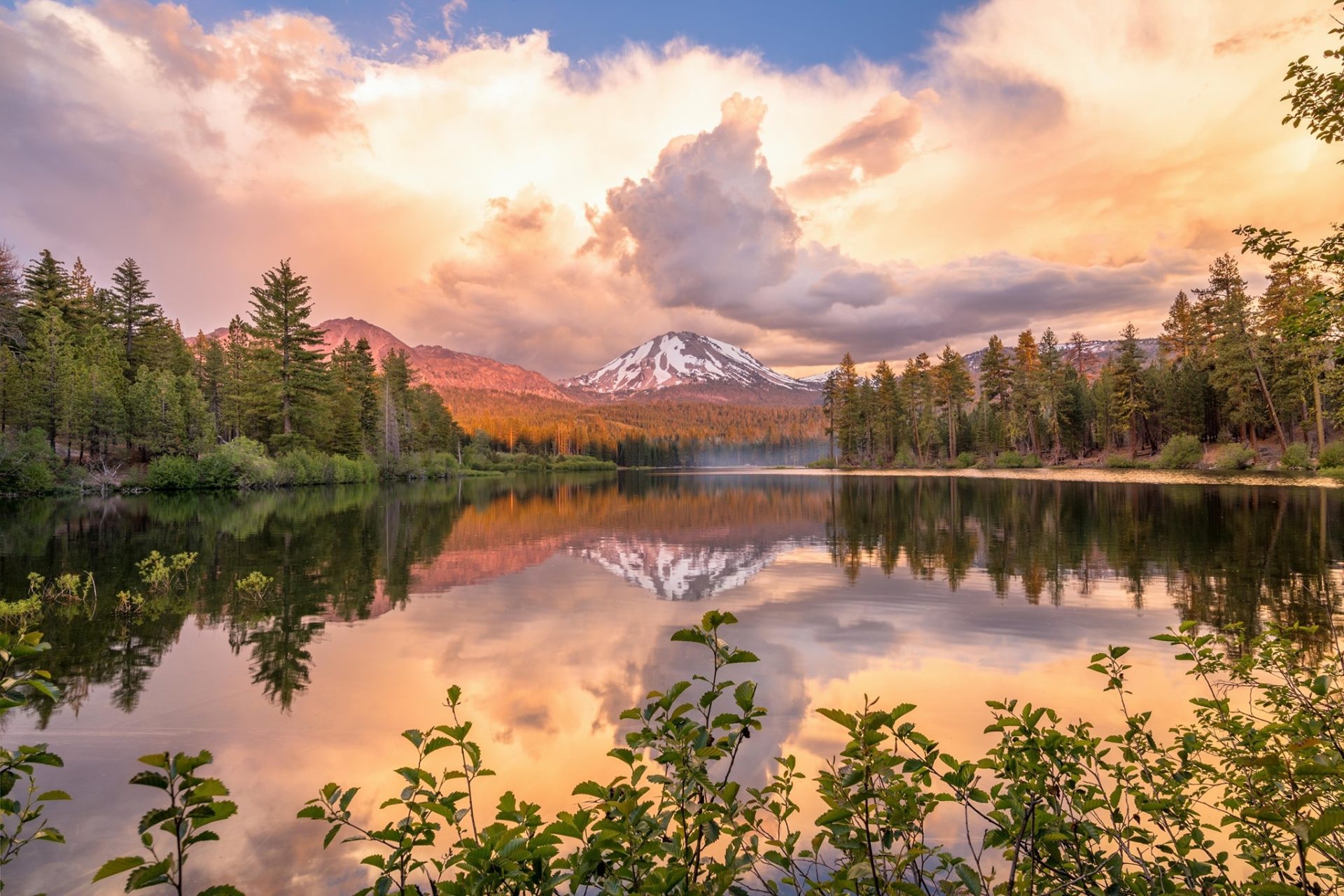
Second, Mt. Shasta (Waka-nunee-Tuki-wuki) is located in Northern California just 60 miles south of the California-Oregon border and approximately 60 miles north of the town of Redding, CA. This sacred stratovolcano sits at an elevation of 14,161 ft with a latitude of 41.20 North and a longitude of 120.20 West.
Now that you have a solid basis for these two beastly volcanoes’ stature, let’s break down how Lassen Peak, which is 3,702 ft shorter than Mt. Shasta, typically gets more snow.
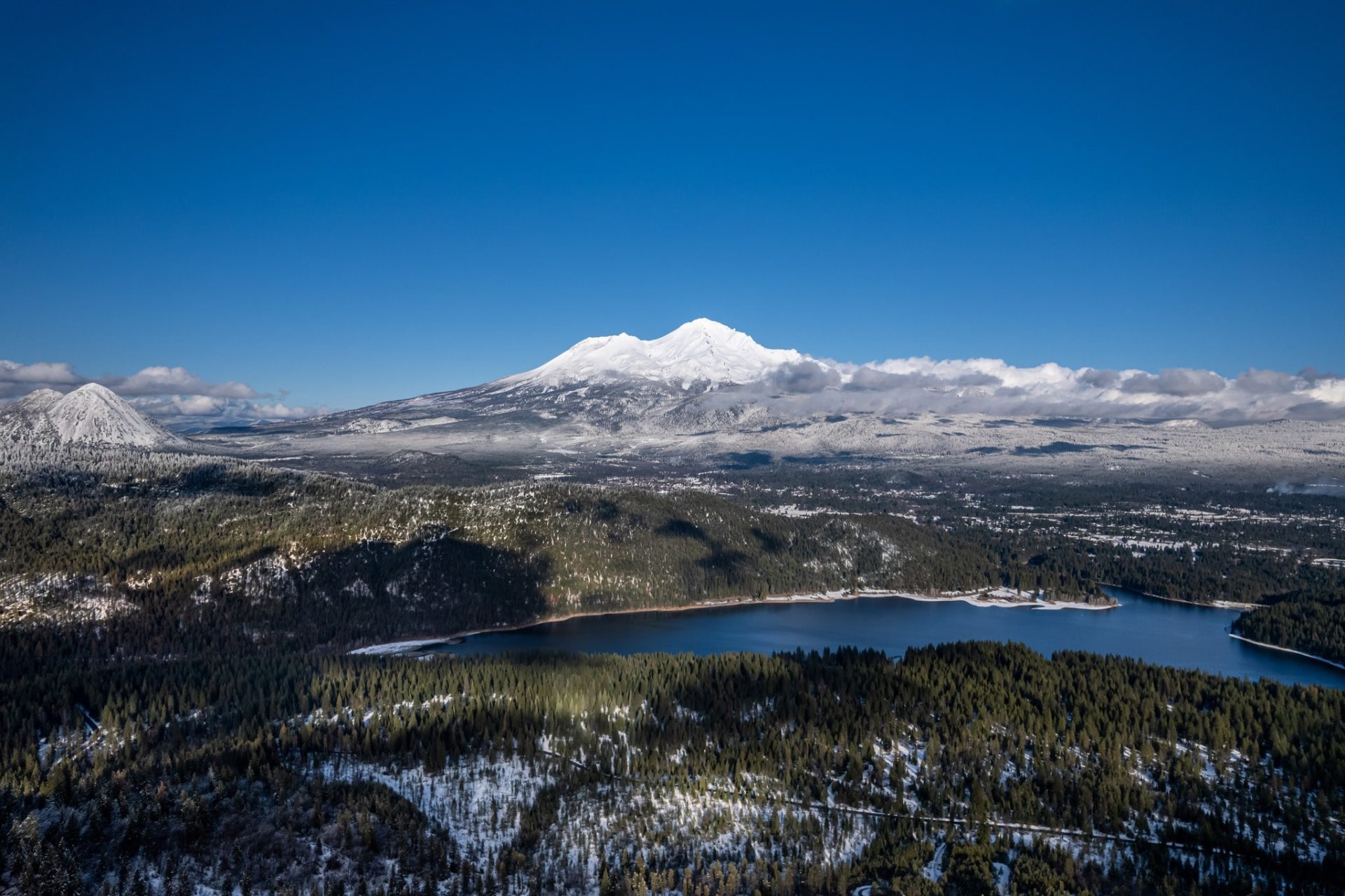
To make this a fair and legitimate comparison, we will be looking at Lake Helen (Lassen Peak) and Horse Camp Meadow (Mt. Shasta). Both of these spots are at around 8,000 ft and situated on the southwest sides of the volcanoes. Despite Mt. Shasta rising almost 3,702 ft higher than Lassen Peak, it likely experiences a rain shadow from the Klamath Mountains, which rise above 8,000 ft. Since the storm tracks typically come from the west/southwest, this can most certainly have an impact on the storm trajectory as these systems migrate east towards Mt. Shasta. Lassen Peak stands alone with no major obstructions and/or nearby competition from other peaks/mountain ranges to the west/southwest, thus potentially getting the full brunt of the winter storm systems.
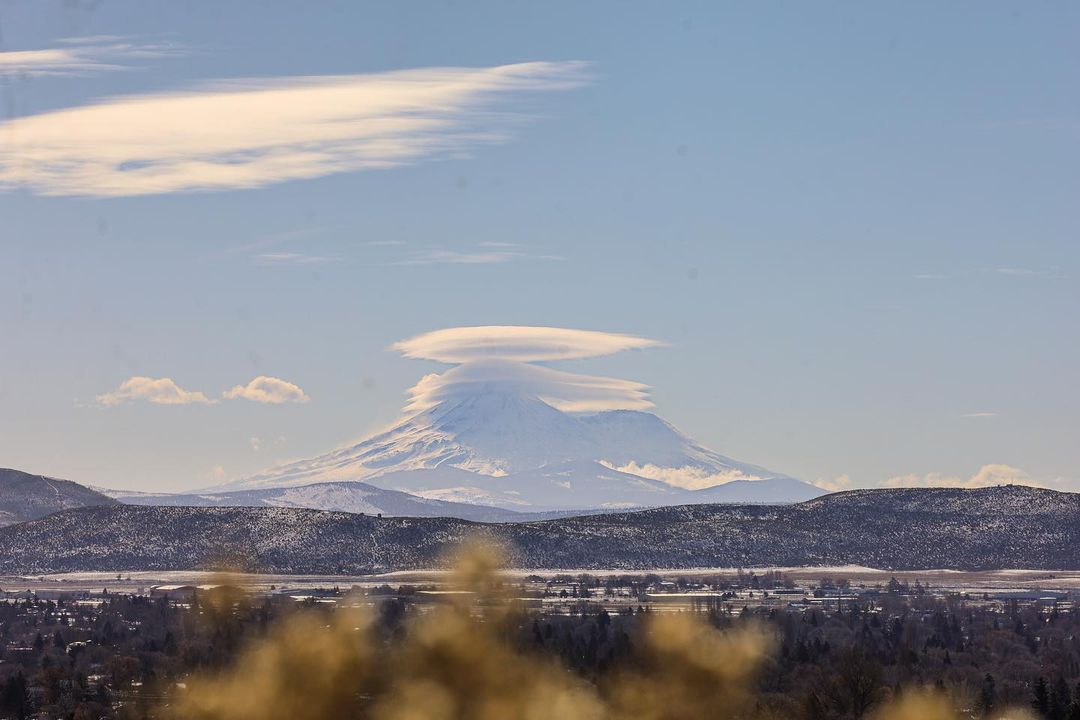
In making this a more telling case for Lassen Peak, let’s look at the same elevation of 8,000 ft for both Lake Helen (Lassen) and Horse Camp Meadow (Mt. Shasta). One could say that Lake Helen more than likely exceeds 550-600+ inches of total snowfall per year. The Horse Camp Meadow comes in at ~400 to 500 inches of total snowfall per year. I want to emphasize that the data is somewhat sparse on this topic. With that said, it makes a compelling stance that the tallest mountains don’t always get the heaviest snowfall.
As we march closer to the beginnings of winter in the Pacific Northwest. I will leave you with this quote.
“When snow falls, nature listens”
– Antoinette van Kleef
